I’ve struggled with what to say this past month, and started multiple drafts of this edition of Be Your Own Hero that just didn’t feel right. They were heavy into grief.
Not that there’s anything wrong with grief. There is plenty to grieve lately. The fall of Roe v. Wade in particular hit me even harder than I was expecting, with so many feelings in such a wide variety and magnitude.
Sputtering disbelief, fear and rage (which
fittingly portmanteaus into FRAGE), a flailing sense of powerlessness, spiraling 3 a.m. paranoia, and a crushing weariness that manifested as wanting to fall over onto the nearest couch and sleep for a very. long. time—it was hard to really even function for a couple weeks afterward.At first I didn’t put it together that these feelings all added up to a bigger emotion of grief. Because our culture, which isn’t good about grieving in general, is also not good about acknowledging anything besides the death of someone close to us as capable of causing grief.
But it can. Oh, yes it can.
I’m grieving not only the stripping of the right of bodily autonomy from half the U.S. population, but more personally, I’m grieving an idea I held of my country and my culture that I finally realize just isn’t true. Even with all I’ve learned as an adult, I held on to an idealized version of what I thought it meant to be an American that I realize was rooted in childish indoctrination. That idea is finally dying, and it’s painful.
As all this was happening, I picked up Brené Brown’s latest book, Atlas of the Heart: Mapping Meaningful Connection and the language of Human Experience1. Its central metaphor is emotions as places, such as Places We Go When We Compare, and Places We Go When Things Aren’t What They Seem. Brown deftly weaves research data, personal stories, and quotes from other researchers and wisdom traditions together in a way that’s eminently readable (as all her books are). The chapters explore how each emotion manifests, how the emotions in each group are similar to and different from each other, and ultimately, how we can use this understanding to foster connection.
I looked up Grief in Places We Go When We’re Hurting. Brown writes that the foundational elements of grief are loss, longing, and feeling lost, and highlights how important it is to be able to share these feelings.
The more difficult it is for us to articulate our experiences of loss, longing, and feeling lost to the people around us, the more disconnected and alone we feel. Talking about grief is difficult in a world that wants us to “get over it” or a community that is quick to pathologize grief.
This really rang true for me. Loss, longing, and feeling lost were at the root of all my swirling emotions. And talking about what I was feeling with people I knew I would be safe with, including my husband, close friends, and a trusted aunt, made me feel less alone, even if they didn’t feel things quite the same way I did.
If you don’t have the opportunity to express these types of feelings, you may experience what’s called “disenfranchised grief.” Brown quoted researcher Tassel Bordere in describing this as grief that “is not openly acknowledged or publicly supported through mourning practices or rituals, because the experience is not valued or counted [by others] as a loss.”
So yeah, the death of a worldview isn’t one that’s generally acknowledged, and if I didn’t have anyone I could share that with, I would definitely have felt disconnected and alone on top of everything else.
Then, in the way life has of never standing still, a few weeks later I had the chance to experience the most joy I have felt in quite a while. That was at the 2022 San Diego Pride Parade. It was the first in-person Pride here in three years, and I marched with my church in our first-ever contingent. Under a perfect blue sky we carried rainbow pinwheels and a banner that said All Are Welcome Here, giving away 400 rubber bracelets with the same message. Every time I waved and shouted “Happy Pride!” to someone in the crowd and saw a light of recognition in their eyes when they connected the cross on our banner and my t-shirt to the words, I felt a little jolt of joy. Which was apropos, since the 2022 parade theme was Justice with Joy.
Atlas of the Heart defines joy as “an intense feeling of deep spiritual connection, pleasure, and appreciation,” and says that, unlike happiness, whose opposite is sadness, joy’s opposite is fear. This is something the queer community embodies so well, especially during Pride.
We don’t have Pride because we are free. We have Pride because we are not …
Pride is a reminder that our celebration is justice. Our joy is defiance. Our love is insubordinate. Our revelry is resistance. — Fernando López, Executive Director, San Diego Pride
Joy is defiance—I love that. And queer community knows that as much as anyone, as its annual celebration is rooted in the first protests to publicly stand up to fear and injustice over 50 years ago. This year, an estimated 250,000 people participated in San Diego Pride. That’s a lot of joy.
All this is to say, it feels brave to acknowledge both our grief and our joy, and even braver when we can share those feelings with others. Admitting that the actions of my government are making me not only angry, but literally causing me grief, feels vulnerable. I’d like to be able to go straight from anger to action, but I can’t. I must stop awhile in grief. And it also feels brave to acknowledge that I am capable of feeling joy in the midst of it all.
It’s okay to grieve, it’s okay to feel joy. It’s okay to be human.
What I’m reading
I’ve been reading a lot2 lately. But the book I most want to recommend is the novel The Sentence, by Louise Erdrich. I listened to it on audiobook on one of my recent trips between San Diego and Las Vegas to visit my dad, a trip made longer on each leg by about two hours due to holiday traffic, so I was happy to have such an engaging set of characters to keep me company.
The Sentence follows Tookie, a middle-aged Native bookseller living with her husband, daughter-in-law, and grandchild in Minneapolis, and takes place in over a year, starting in November 2019 and going through November 2020. It’s the first novel I’ve read that includes the pandemic, and, since it takes place in Minneapolis, the murder of George Floyd and the aftermath also play a significant role in the story. Oh, and there’s a ghost, of a particularly annoying regular at the bookstore, who haunts Tookie there. It works better than I made it sound.
The story encompasses themes of commitment, both to family and to community, as well as reckoning, forgiveness, and letting go. After a bit of a slow start, I became really invested in all the characters, and they stayed with me long after the last sentence.
So there you have it, my friends. I hope this issue of Be Your Own Hero gave you something to think about. Have you experienced disenfranchised grief? Have you sometimes felt hesitant to express feelings of joy when the world seems so messed up? I’d love to hear about it in the comments. All respectful discussion is welcome.
Did you appreciate this issue of Be Your Own Hero? Please share it with a friend. Thanks!
All books are linked through my Bookshop.org store, and earn an affiliate commission. In 2022, this commission will be donated to the Strong Hearted Native Women’s Coalition in San Diego County.
For all my reading and reviews beyond what I post in my Bookshop lists, follow or friend me at The StoryGraph. You'll need a (free) account to log in, but if you’re anything like me you will love it. It’s an independent, Black-owned, reader-centric place to track your reading and discover new books that’s way less annoying than Goodreads.

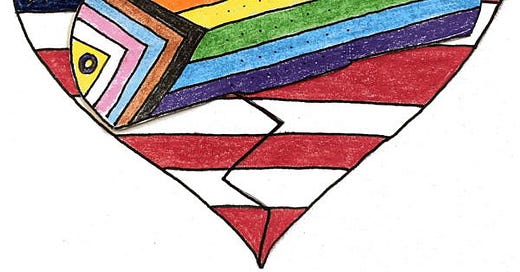


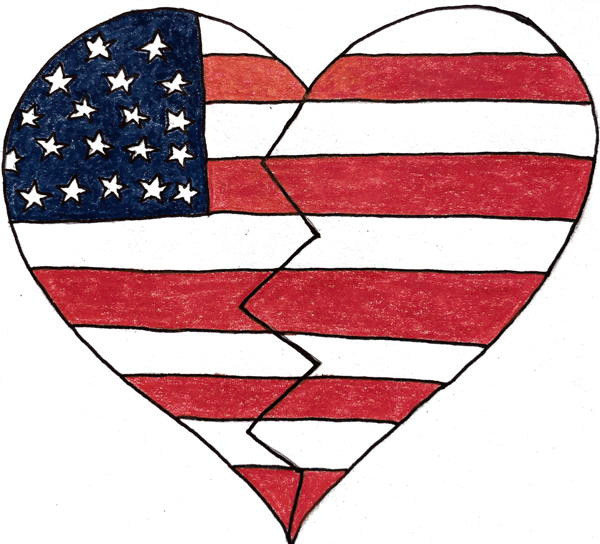
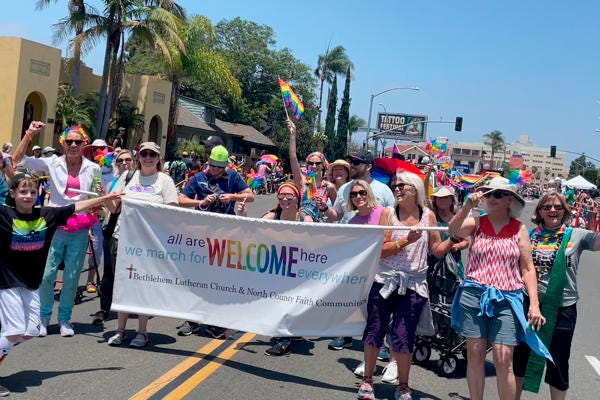
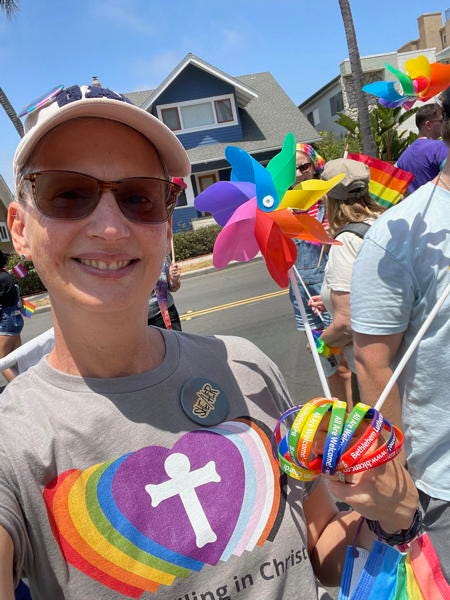

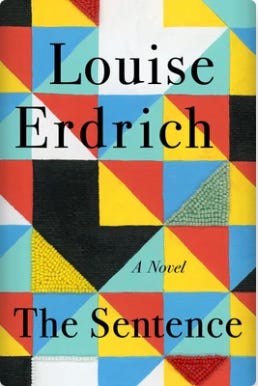
Thanks Louise for your reflection. Before reading your post I had ordered five of Louise Erdrich’s novels. I heard her speak on Judy Woodruff news about her latest book.👍
Grief for a worldview, and grief for a faltering Democracy is real grief. And keep marching, please. It's literally a first step toward change. xo